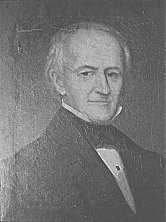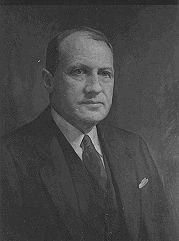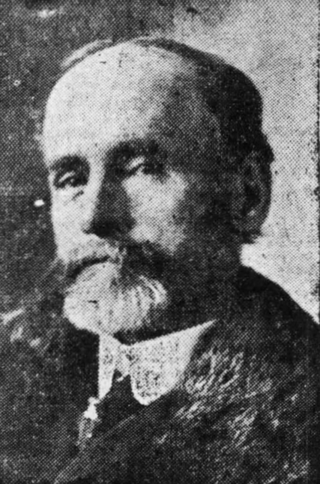Related Research Articles

Portsmouth is a city in Rockingham County, New Hampshire, United States. At the 2020 census it had a population of 21,956. A historic seaport and popular summer tourist destination on the Piscataqua River bordering the state of Maine, Portsmouth was formerly the home of the Strategic Air Command's Pease Air Force Base, since converted to Portsmouth International Airport at Pease.

The United States Customs Service was the very first federal law enforcement agency of the U.S. federal government. Established on July 31, 1789, it collected import tariffs, performed other selected border security duties, as well as conducted criminal investigations.
Local Media Group, Inc., formerly Dow Jones Local Media Group and Ottaway Newspapers Inc., owned newspapers, websites and niche publications in California, Maine, Massachusetts, New Hampshire, New York, Oregon and Pennsylvania. It was headquartered in Campbell Hall, New York, and its flagship was the Times Herald-Record, serving Middletown and other suburbs of New York City.

Henry Hubbard was a member of the United States House of Representatives from 1829 to 1835, a Senator from New Hampshire during 1835 to 1841, and the 18th governor of New Hampshire from 1842 to 1844.

Fred Herbert Brown was an American lawyer, baseball player, and politician from New Hampshire. A member of the Democratic Party, Brown was the 59th governor of New Hampshire and a United States Senator.

HM Customs was the national Customs service of England until a merger with the Department of Excise in 1909. The phrase 'HM Customs', in use since the Middle Ages, referred both to the customs dues themselves and to the office of state established for their collection, assessment and administration.

Charles Hazen Peaslee was a U.S. Representative from New Hampshire.
Lorenzo Sabine was a U.S. Representative from Massachusetts now more remembered for his research and publishing concerning the Loyalists of the American Revolution than as a public servant.

The Collector of Customs at the Port of New York, most often referred to as Collector of the Port of New York, was a federal officer who was in charge of the collection of import duties on foreign goods that entered the United States by ship at the Port of New York.
The United States Customs District of Salem and Beverly was an administrative area for the collection of import duties on foreign goods that entered the United States by ship at the ports of Salem and Beverly. Established in 1789, it was abolished in 1913. Today the ports of Salem and Beverly are serviced by the Port of Gloucester, which is administered by the Boston Customs District.
The United States Customs District of Newburyport was an administrative area for the collection of import duties on foreign goods that entered the United States by ship at the port of Newburyport. Established in 1789, it was abolished in 1910.
Peter W. Princi was an attorney who served as Collector of Customs for the Port of Boston and as a United States magistrate judge.
Maynard W. Hutchinson was a political figure who served as Collector of Customs for the Port of Boston.
Joseph McGrath was an American politician who served as acting Mayor of Boston during the tenure of James Michael Curley, Chairman of the Massachusetts Democratic Party, and Collector of Customs for the Port of Boston.
Edmund Billings was a Canadian born American financier, banker, sociologist, philanthropist, and government official who served on a number of relief committees and was Collector of Customs for the Port of Boston during World War I.
The United States Customs District of New Bedford was an administrative area for the collection of import duties on foreign goods that entered the United States by ship at the port of New Bedford, Massachusetts. Established in 1789, it ceased to be an independent district in 1913, but continues to operate as a port of entry.

George Hinckley Lyman was an American political figure who served as chairman of the Massachusetts Republican state committee and collector of customs for the port of Boston.

William H. Jordan was an American herring merchant from Gloucester, Massachusetts.

Charles Levi Woodbury was an American lawyer and politician.
John C. Pappas (1906–1972) was a Greek-American jurist and businessman.
References
- 1 2 3 4 "Albert E. Martel, 68, Retired Customs Official". The Boston Globe. November 7, 1965.
- ↑ Officials and Employees of the City of Boston and the County of Suffolk with Their Residences, Compensation, etc. 1921. Boston: City of Boston Printing Department. 1921. p. 154. Retrieved March 23, 2015.
- ↑ "Dismissal of Patrolman Albert E. Martel Upheld". The Boston Daily Globe. November 7, 1926.
- ↑ "Berlin Man Receives V.F.W. Post". The Coos Guardian. July 5, 1934.
- ↑ Laws of the State of New Hampshire. 1935. Retrieved March 23, 2015.
- ↑ "Many Favor Barbers' Licensing Measure". The Portsmouth Herald. February 1, 1935.
- ↑ "Members Ask More Money in Mileage Fee". The Portsmouth Herald. May 1, 1935.
- ↑ "Gloucester Shifts from Fish Supplier to Importer". The New York Times . December 24, 1960.
- ↑ "New Record for Duties". Fishing Gazette. Fishing Gazette Publishing Corporation. 1959.
- ↑ "Along the North Shore". The Boston Globe . November 10, 1963.